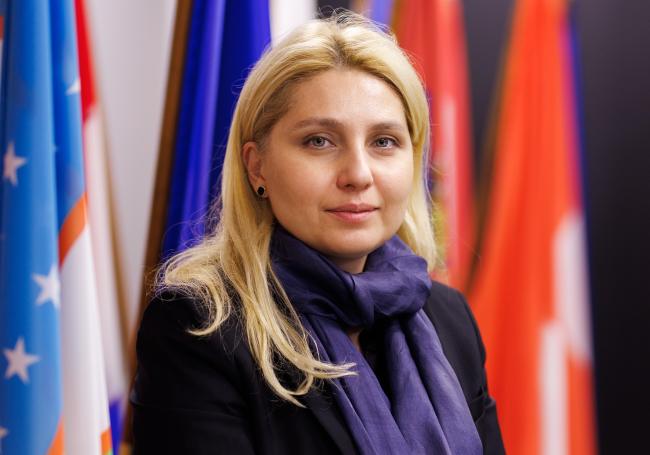Tea Jaliashvili
First Deputy Director - OSCE Office for Democratic Institutions and Human Rights

Please tell us about your professional background. Where have you worked before coming to the OSCE, and what were your responsibilities?
Before joining the OSCE Office for Democratic Institutions and Human Rights (ODIHR), I served as Acting Head of the OSCE Programme Office in Dushanbe, which works on issues key to democracy including border management, combating terrorism, trafficking in human beings, arms and drugs, economic and environmental topics, human rights, good governance, and the rule of law. Before that I was Deputy Director at the Women’s Information Center in Georgia, where I worked to strengthen the capacity of civil society to protect and advance women’s rights along with supporting greater gender equality. I truly believe that “when women act, they make change happen”, and this motto underpins every action of mine.
Previously, I worked for the UN, Council of Europe and EU joint initiatives in the Western Balkans and South Caucasus. Within the wider framework of achieving peaceful and just societies based on the principles of good governance and rule of law, I contributed to legislative changes, policy and institutional developments, which also helped to strengthen and harmonise the work of the judiciary and National Human Rights Institutions. This experience prepared me well for my work at the OSCE.
What is your academic background, and how does it align with the career you have developed?
I hold Master Degrees in International Human Rights Law and Public administration, as well as a Doctorate in Medicine and Philosophy (MD-PhD). All of them greatly contributed to advancing my knowledge and skills in law, multilateralism, strategic management, human based approaches aligning impeccably with my current role at the OSCE.
Where are you based now, and what do you like most about your current job at the OSCE?
As ODIHR’s First Deputy Director, I help to translate best practices and standards into practical action. ODIHR works across the 57 countries of the OSCE region to strengthen democratic institutions and elections, promote the rule of law, protect human rights, and build tolerant and inclusive societies.
Ever since its inception, ODIHR has been a bridge builder between governments and civil society organizations, as well as academia and the media, helping to create alliances that underpin freedom and increase respect for human rights. This has always been and will continue to be key to my work at ODIHR.
What advice would you give to applicants considering a career in international civil service?
I highly recommend the OSCE to any applicant with a passion for strengthening democracy through multilateralism. This is the right place for you if your goal is to contribute to the international peace and security agenda in a variety of contexts and from a diverse spectrum of perspectives. If you want to work in a unique organisation based on universal values and principles and make a positive difference every day, then join us!

